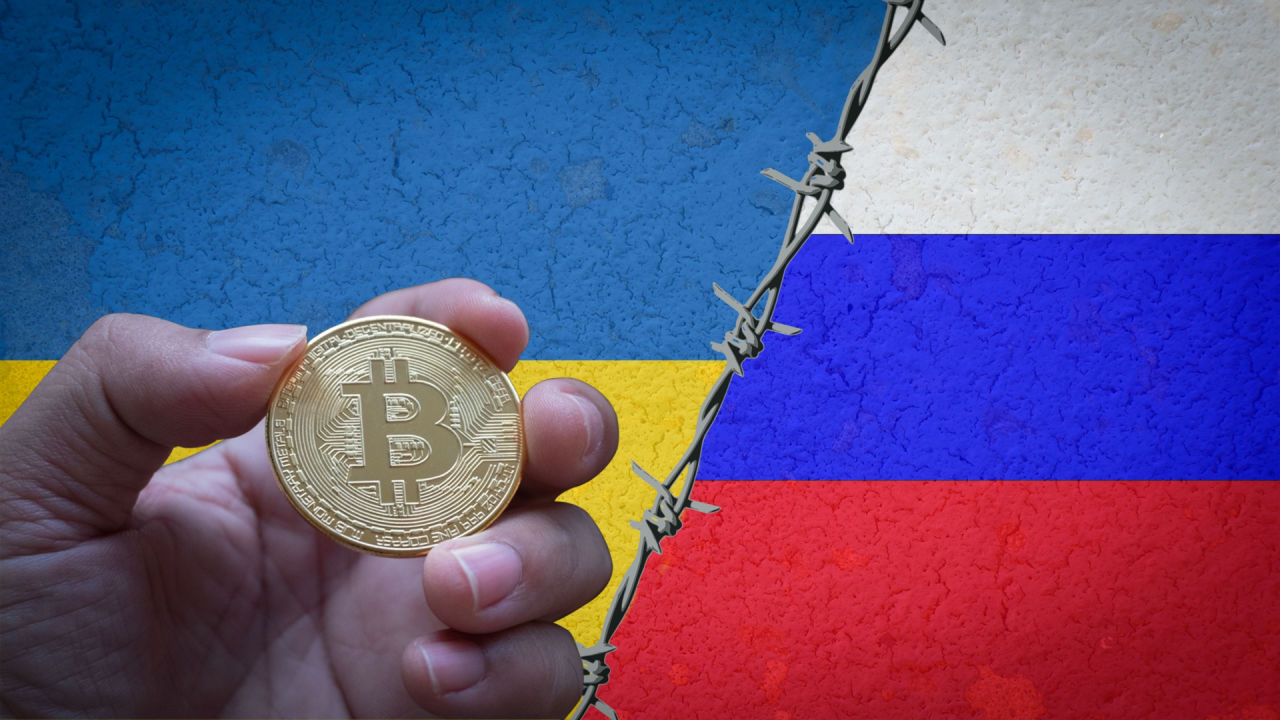
The financial monitoring agency of Ukraine has restricted access to a number of online crypto exchangers operating out of Russia. Some of the coin trading platforms are working with sanctioned Russian banks, the regulatory body announced in a report.
Ukrainian Financial Authorities Target Russian Crypto Exchange Websites and Wallets
The State Financial Monitoring Service (SFMS), a unit of Ukraine’s financial intelligence, has issued a special report on the results of its operations in 2022. Besides its peacetime activities such as combating money laundering, the agency revealed it has contributed to the country’s defense effort as part of the ongoing conflict with Russia.
In the document published this week, the watchdog announced its employees have joined forces with colleagues from the Ministry of Digital Transformation and leading Ukrainian crypto experts. Together, they were able to identify Russian crypto exchanges associated with Russian financial institutions placed under sanctions, including Russia’s largest bank, Sber.
The Ukrainian financial regulator did not specify the exact number of these platforms or their domain names but emphasized that the aim was to fully block them.
Also, working closely with crypto service providers in Ukraine and abroad, the SFMS introduced a mechanism for the “blocking of crypto wallets of the Russian Federation.” It’s unclear whether it means Russian wallets in general or those linked to the government in Moscow.
The state service reminded that last year it turned to Binance, the world’s largest crypto exchange, suggesting actions “to curb the aggression of the Russian Federation in the virtual assets market” and prevent peer-to-peer transactions for users of various Russian banks and payment systems.
“Other practical measures related to the blocking of Russian crypto assets and operations of Russian residents have been implemented,” the agency added without elaborating. It has been cooperating with the financial authorities of almost 140 countries on the matter while severing ties with regulators in Russia and Belarus.
Ukraine Engaged in Regional Initiative to Prevent Money Laundering Through Crypto
The SFMS also noted it’s involved in cooperation between Ukraine, Georgia, and Moldova — countries with a steadily growing crypto market and mining sector — focused on reducing money laundering through digital assets. The project is being realized with assistance from the UN and OSCE.
The report coincided with a statement by Ukraine’s Minister of Digital Transformation, Mykhailo Fedorov, promising that the country will become “the best crypto jurisdiction in the world” once it finalizes its regulatory framework for the industry.
In the past few years, Ukraine established itself as a leader in crypto adoption in Eastern Europe and has been accepting crypto donations since the start of the Russian invasion. Its parliament passed a law “On Virtual Assets” last February and has been preparing respective amendments to the Tax Code.
What do you think about Ukraine blocking Russian crypto exchange platforms? Share your thoughts on the subject in the comments section below.
Image Credits: Shutterstock, Pixabay, Wiki Commons
Disclaimer: This article is for informational purposes only. It is not a direct offer or solicitation of an offer to buy or sell, or a recommendation or endorsement of any products, services, or companies. Bitcoin.com does not provide investment, tax, legal, or accounting advice. Neither the company nor the author is responsible, directly or indirectly, for any damage or loss caused or alleged to be caused by or in connection with the use of or reliance on any content, goods or services mentioned in this article.


















